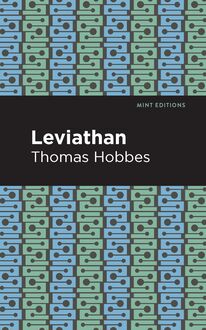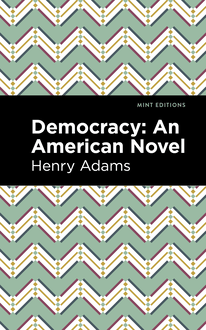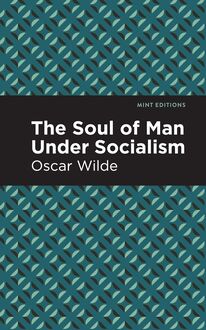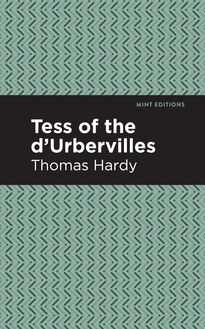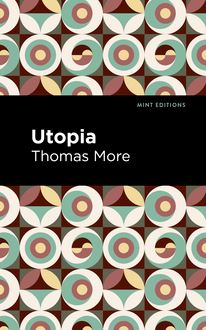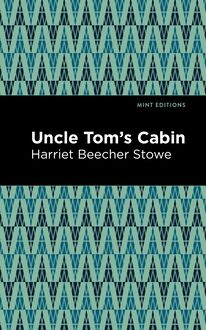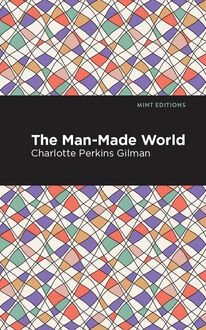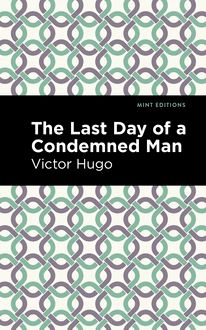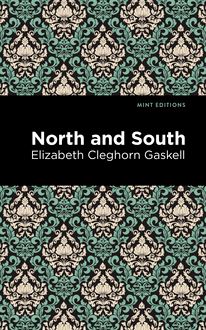-
 Univers
Univers
-
 Ebooks
Ebooks
-
 Livres audio
Livres audio
-
 Presse
Presse
-
 Podcasts
Podcasts
-
 BD
BD
-
 Documents
Documents
-
- Cours
- Révisions
- Ressources pédagogiques
- Sciences de l’éducation
- Manuels scolaires
- Langues
- Travaux de classe
- Annales de BEP
- Etudes supérieures
- Maternelle et primaire
- Fiches de lecture
- Orientation scolaire
- Méthodologie
- Corrigés de devoir
- Annales d’examens et concours
- Annales du bac
- Annales du brevet
- Rapports de stage
La lecture à portée de main
Vous pourrez modifier la taille du texte de cet ouvrage
Découvre YouScribe en t'inscrivant gratuitement
Je m'inscrisDécouvre YouScribe en t'inscrivant gratuitement
Je m'inscrisEn savoir plus
Vous pourrez modifier la taille du texte de cet ouvrage
En savoir plus

Description
Caleb Williams; Or, Things as They Are (1794) is a novel by English writer and political philosopher William Godwin. Published a year after the appearance of his Enquiry Concerning Political Justice (1793), Caleb Williams; Or, Things as They Are is a thriller and mystery based on the principles set forth in his popular work of anarchist political philosophy.
Caleb Williams, a self-educated orphan, gets a job at the estate of Ferdinando Falkland, a reclusive aristocrat. Curious as to his master’s temperamental nature, Williams asks the estate’s administrator to share any information he knows regarding Falkland’s past. Through Mr. Collins, Caleb learns of Falkland’s feud with Barnabas Tyrrel, his oppressive neighbor. Caleb is surprised to discover that Falkland was once regarded as a generous and gregarious gentleman who persevered in vain for the love of Tyrrel’s niece. Following Emily Melville’s untimely death and the unsolved murder of Barnabas Tyrrel, Falkland became an embittered man, prone to violent outbursts and averse to social interaction. Shocked by Mr. Collins’s account, Caleb begins to investigate Falkland’s behavior and soon grows to suspect his master of murder. When news of his suspicion reaches Falkland, he accuses Caleb of attempted theft, forcing the young man to flee under threat of imprisonment. A fugitive, Caleb resists the temptations of criminal life, but the past—and Falkland—are never far behind him.
With a beautifully designed cover and professionally typeset manuscript, this edition of William Godwin’s Caleb Williams; Or, Things as They Are is a classic of English literature reimagined for modern readers.
Sujets
Informations
| Publié par | Mint Editions |
| Date de parution | 23 février 2021 |
| Nombre de lectures | 0 |
| EAN13 | 9781513276694 |
| Langue | English |
| Poids de l'ouvrage | 2 Mo |
Informations légales : prix de location à la page 0,0500€. Cette information est donnée uniquement à titre indicatif conformément à la législation en vigueur.
Extrait
Caleb Williams; Or, Things as They Are
William Godwin
Caleb Williams; Or, Things as They Are was first published in 1794.
This edition published by Mint Editions 2020.
ISBN 9781513271699 | E-ISBN 9781513276694
Published by Mint Editions®
minteditionbooks.com
Publishing Director: Jennifer Newens
Design & Production: Rachel Lopez Metzger
Project Manager: Micaela Clark
Typesetting: Westchester Publishing Services
C ONTENTS V OLUME THE F IRST I II III IV V VI VII VIII IX X XI XII V OLUME THE S ECOND I II III IV V VI VII VIII IX X XI XII XIII XIV V OLUME THE T HIRD I II III IV V VI VII VIII IX X XI XII XIII XIV XV P OSTSCRIPT
D RAMATIS P ERSONAE
M R . F ERDINANDO F ALKLAND , a high-spirited and highly cultured gentleman, a country squire in “a remote county of England.”
C ALEB W ILLIAMS , a youth, his secretary, the discoverer of his secret, and the supposed narrator of the consequent events.
M R . C OLLINS , Falkland’s steward and Caleb’s friend.
T HOMAS , a servant of Falkland’s.
M R . F ORESTER , Falkland’s brother-in-law.
M R . B ARNABAS T YRREL , a brutal and tyrannical squire.
M ISS E MILY M ELVILLE , his cousin and dependent, whom he cruelly maltreats and does to death.
G RIMES , a brutal rustic, suborned by Tyrrel to abduct Miss Melville.
D R . W ILSON ; M RS . H AMMOND , friends of Miss Melville. M R . H AWKINS , farmer; Y OUNG H AWKINS , his son, Victims of Tyrrel’s brutality, and wrongfully hanged as his murderers.
G INES , a robber and thief-taker, instrument of Falkland’s vengeance upon Caleb.
M R . R AYMOND , an “Arcadian” captain of robbers.
L ARKINS , one of his band.
A N O LD H AG , housekeeper to the robbers.
A G AOLER .
M ISS P EGGY , the gaoler’s daughter.
M RS . M ARNEY , a poor gentlewoman, Caleb’s friend in distress.
M R . S PURREL , a friend who informs on Caleb.
M RS . D ENISON , a cultivated lady with whom Caleb is for a while on friendly terms.
VOLUME THE FIRST
I
M y life has for several years been a theatre of calamity. I have been a mark for the vigilance of tyranny, and I could not escape. My fairest prospects have been blasted. My enemy has shown himself inaccessible to entreaties, and untired in persecution. My fame, as well as my happiness, has become his victim. Every one, as far as my story has been known, has refused to assist me in my distress, and has execrated my name. I have not deserved this treatment. My own conscience witnesses in behalf of that innocence, my pretensions to which are regarded in the world as incredible. There is now, however, little hope that I shall escape from the toils that universally beset me. I am incited to the penning of these memoirs only by a desire to divert my mind from the deplorableness of my situation, and a faint idea that posterity may by their means be induced to render me a justice which my contemporaries refuse. My story will, at least, appear to have that consistency which is seldom attendant but upon truth.
I was born of humble parents, in a remote county of England. Their occupations were such as usually fall to the lot of peasants, and they had no portion to give me, but an education free from the usual sources of depravity, and the inheritance, long since lost by their unfortunate progeny! of an honest fame. I was taught the rudiments of no science, except reading, writing, and arithmetic. But I had an inquisitive mind, and neglected no means of information from conversation or books. My improvement was greater than my condition in life afforded room to expect.
There are other circumstances deserving to be mentioned as having influenced the history of my future life. I was somewhat above the middle stature. Without being particularly athletic in appearance, or large in my dimensions, I was uncommonly vigorous and active. My joints were supple, and I was formed to excel in youthful sports. The habits of my mind, however, were to a certain degree at war with the dictates of boyish vanity. I had considerable aversion to the boisterous gaiety of the village gallants, and contrived to satisfy my love of praise with an unfrequent apparition at their amusements. My excellence in these respects, however, gave a turn to my meditations. I delighted to read of feats of activity, and was particularly interested by tales in which corporeal ingenuity or strength are the means resorted to for supplying resources and conquering difficulties. I inured myself to mechanical pursuits, and devoted much of my time to an endeavour after mechanical invention.
The spring of action which, perhaps more than any other, characterised the whole train of my life, was curiosity. It was this that gave me my mechanical turn; I was desirous of tracing the variety of effects which might be produced from given causes. It was this that made me a sort of natural philosopher; I could not rest till I had acquainted myself with the solutions that had been invented for the phenomena of the universe. In fine, this produced in me an invincible attachment to books of narrative and romance. I panted for the unravelling of an adventure with an anxiety, perhaps almost equal to that of the man whose future happiness or misery depended on its issue. I read, I devoured compositions of this sort. They took possession of my soul; and the effects they produced were frequently discernible in my external appearance and my health. My curiosity, however, was not entirely ignoble: village anecdotes and scandal had no charms for me: my imagination must be excited; and when that was not done, my curiosity was dormant.
The residence of my parents was within the manor of Ferdinando Falkland, a country squire of considerable opulence. At an early age I attracted the favourable notice of Mr. Collins, this gentleman’s steward, who used to call in occasionally at my father’s. He observed the particulars of my progress with approbation, and made a favourable report to his master of my industry and genius.
In the summer of the year —, Mr. Falkland visited his estate in our county after an absence of several months. This was a period of misfortune to me. I was then eighteen years of age. My father lay dead in our cottage. I had lost my mother some years before. In this forlorn situation I was surprised with a message from the squire, ordering me to repair to the mansion-house the morning after my father’s funeral.
Though I was not a stranger to books, I had no practical acquaintance with men. I had never had occasion to address a person of this elevated rank, and I felt no small uneasiness and awe on the present occasion. I found Mr. Falkland a man of small stature, with an extreme delicacy of form and appearance. In place of the hard-favoured and inflexible visages I had been accustomed to observe, every muscle and petty line of his countenance seemed to be in an inconceivable degree pregnant with meaning. His manner was kind, attentive, and humane. His eye was full of animation; but there was a grave and sad solemnity in his air, which, for want of experience, I imagined was the inheritance of the great, and the instrument by which the distance between them and their inferiors was maintained. His look bespoke the unquietness of his mind, and frequently wandered with an expression of disconsolateness and anxiety.
My reception was as gracious and encouraging as I could possibly desire. Mr. Falkland questioned me respecting my learning, and my conceptions of men and things, and listened to my answers with condescension and approbation. This kindness soon restored to me a considerable part of my self-possession, though I still felt restrained by the graceful, but unaltered dignity of his carriage. When Mr. Falkland had satisfied his curiosity, he proceeded to inform me that he was in want of a secretary, that I appeared to him sufficiently qualified for that office, and that, if, in my present change of situation, occasioned by the death of my father, I approved of the employment, he would take me into his family.
I felt highly flattered by the proposal, and was warm in the expression of my acknowledgments. I set eagerly about the disposal of the little property my father had left, in which I was assisted by Mr. Collins. I had not now a relation in the world, upon whose kindness and interposition I had any direct claim. But, far from regarding this deserted situation with terror, I formed golden visions of the station I was about to occupy. I little suspected that the gaiety and lightness of heart I had hitherto enjoyed were upon the point of leaving me for ever, and that the rest of my days were devoted to misery and alarm.
My employment was easy and agreeable. It consisted partly in the transcribing and arranging certain papers, and partly in writing from my master’s dictation letters of business, as well as sketches of literary composition. Many of these latter consisted of an analytical survey of the plans of different authors and conjectural speculations upon hints they afforded, tending either to the detection of their errors, or the carrying forward their discoveries. All of them bore powerful marks of a profound and elegant mind, well stored with literature, and possessed of an uncommon share of activity and discrimination.
My station was in that part of the house which was appropriated for the reception of books, it being my duty to perform the functions of librarian as well as secretary. Here my hours would have glided in tranquillity and peace, had not my situation included in it circumstances totally different from those which attended me in my father’s cottage. In early life my mind had been much engrossed by reading and reflection: my intercourse with my fellow mortals was occasional and short. But, in my new residence, I was excited by every motive of interest and novelty to study my master’s character; and I found in it an ample field for speculation and conjecture.
His mode of living was in the utmos
-
 Univers
Univers
-
 Ebooks
Ebooks
-
 Livres audio
Livres audio
-
 Presse
Presse
-
 Podcasts
Podcasts
-
 BD
BD
-
 Documents
Documents
-
Jeunesse
-
Littérature
-
Ressources professionnelles
-
Santé et bien-être
-
Savoirs
-
Education
-
Loisirs et hobbies
-
Art, musique et cinéma
-
Actualité et débat de société
-
Jeunesse
-
Littérature
-
Ressources professionnelles
-
Santé et bien-être
-
Savoirs
-
Education
-
Loisirs et hobbies
-
Art, musique et cinéma
-
Actualité et débat de société
-
Actualités
-
Lifestyle
-
Presse jeunesse
-
Presse professionnelle
-
Pratique
-
Presse sportive
-
Presse internationale
-
Culture & Médias
-
Action et Aventures
-
Science-fiction et Fantasy
-
Société
-
Jeunesse
-
Littérature
-
Ressources professionnelles
-
Santé et bien-être
-
Savoirs
-
Education
-
Loisirs et hobbies
-
Art, musique et cinéma
-
Actualité et débat de société
- Cours
- Révisions
- Ressources pédagogiques
- Sciences de l’éducation
- Manuels scolaires
- Langues
- Travaux de classe
- Annales de BEP
- Etudes supérieures
- Maternelle et primaire
- Fiches de lecture
- Orientation scolaire
- Méthodologie
- Corrigés de devoir
- Annales d’examens et concours
- Annales du bac
- Annales du brevet
- Rapports de stage
